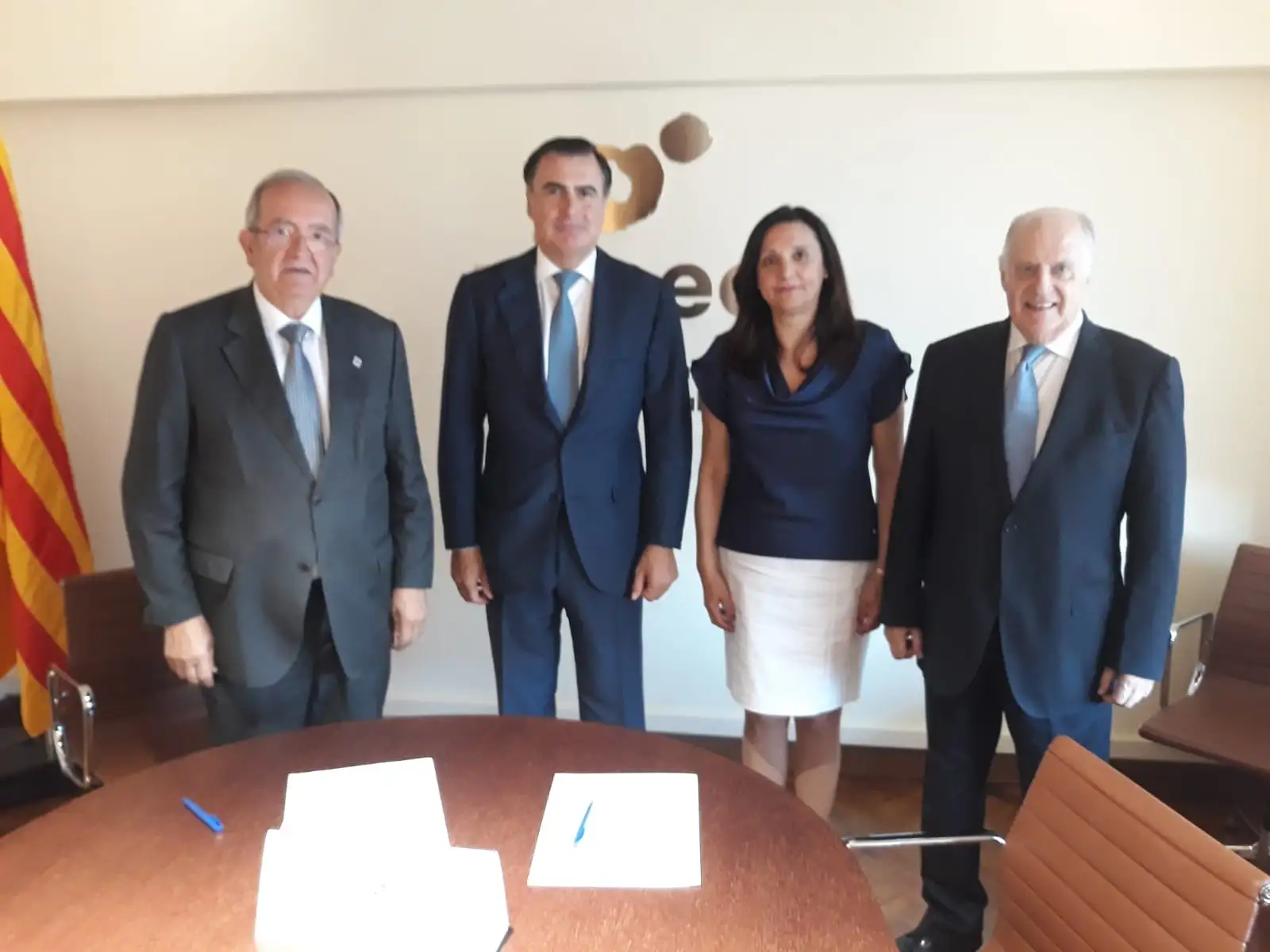
The Maritime Cluster of Catalonia is born and is integrated into the Spanish Maritime Cluster
The Maritime Cluster of Catalonia is born and is integrated into the Spanish Maritime Cluster

The Maritime Cluster of Catalonia has made its official presentation by the Catalan employer PIMEC and the Spanish Maritime Cluster to boost the competitiveness of the Catalan maritime sector
The headquarters of the Catalan patron of the Micro, Petita i Mitjana Empresa de Catalunya (PIMEC), in Barcelona, hosted the official act of constitution of the Maritime Cluster of Catalonia, which will be part of the Spanish Maritime Cluster (CME). The executive committee of PIMEC and president of the Federation of Business Identity Values and Alternative Strategies for Maritime and Fisheries Entrepreneurs (IVEAEMPA), Iolanda Piera, who will chair the Catalan cluster, and the president of the CME, Alejandro Aznar, the president of PIMEC, Josep González, and the president of honor of the CME, Federico Esteve, participated in the constitution.
The Maritime Cluster of Catalonia is born with the aim of promoting the competitiveness of the Catalan maritime sector, which includes transport, fishing and tourism and nautical activities at all levels. In this way, it aligns itself with EU-led Blue Growth policies, bringing its efforts together with those of the Spanish Maritime Cluster, of which it will be a part, to maintain and strengthen the growth, competitiveness and sustainability of maritime activities.
The strategy of the CME goes through cooperation with all the associations and forums of the sector, as in this case with the Catalan Cluster, bringing together efforts to represent all segments of the maritime sector as a whole, and to promote the development and competitiveness of Spanish maritime companies and industries, as well as to position the Blue Economy as a national strategic sector.
The maritime sector is of great importance to the Autonomous Community, in which there are 52 ports and nautical clubs, in addition to the important ports of Barcelona and Tarragona, dependent on State Ports. Spaces of great economic activity that concentrate the transport of people and goods, the fishing industry, as well as many leisure and tourist activities. In this sense, the ports of the Generalitat enter or leave annually more than 2.3 million tons of goods, are downloaded around 36,000 tons of fish and there is a passenger traffic of more than half a million people. In the ports of Barcelona and Tarragona, the traffic of passengers is close to 3 million and that of goods to 53 million tons; according to data from the Sectoral Report of the Ajuntment of Barcelona.
In 2018 the Port of Barcelona generated an induced economic impact of 9,260 million euros, the equivalent of 6% of the Gross Domestic Product of Catalonia, according to data of the Harbour Authority, and to which more than 32,000 jobs are linked. In this way, the Port of Barcelona is one of the main engines of economic development of the community, although the maritime sector is much more, as the cluster itself represents. In this regard, it should be borne in mind that the fishing in Catalonia generated almost 103 million euros, according to the data of the Generalitat, made more than 27,000 tons of catches and has 732 registered vessels. Aquaculture, on the other hand, recorded a production in 2018 of 8,000 tonnes, worth more than EUR 25 million.
Another representative segment of the Catalan maritime sector is the sports nautical, where Catalonia was second national position, with a market share of 18.9%, according to data of the National Association of Nautical Enterprises (Anen).
PIMEC is the most important patron in Catalonia. It is made up of 128,000 partner companies and 274 sectoral associations, many of which are related to the Blue Economy. It has 172 employees, 200 collaborators and 18 headquarters in Catalonia and one in Brussels.
© 2024 Nautica Digital Europe - www.nauticadigital.eu











